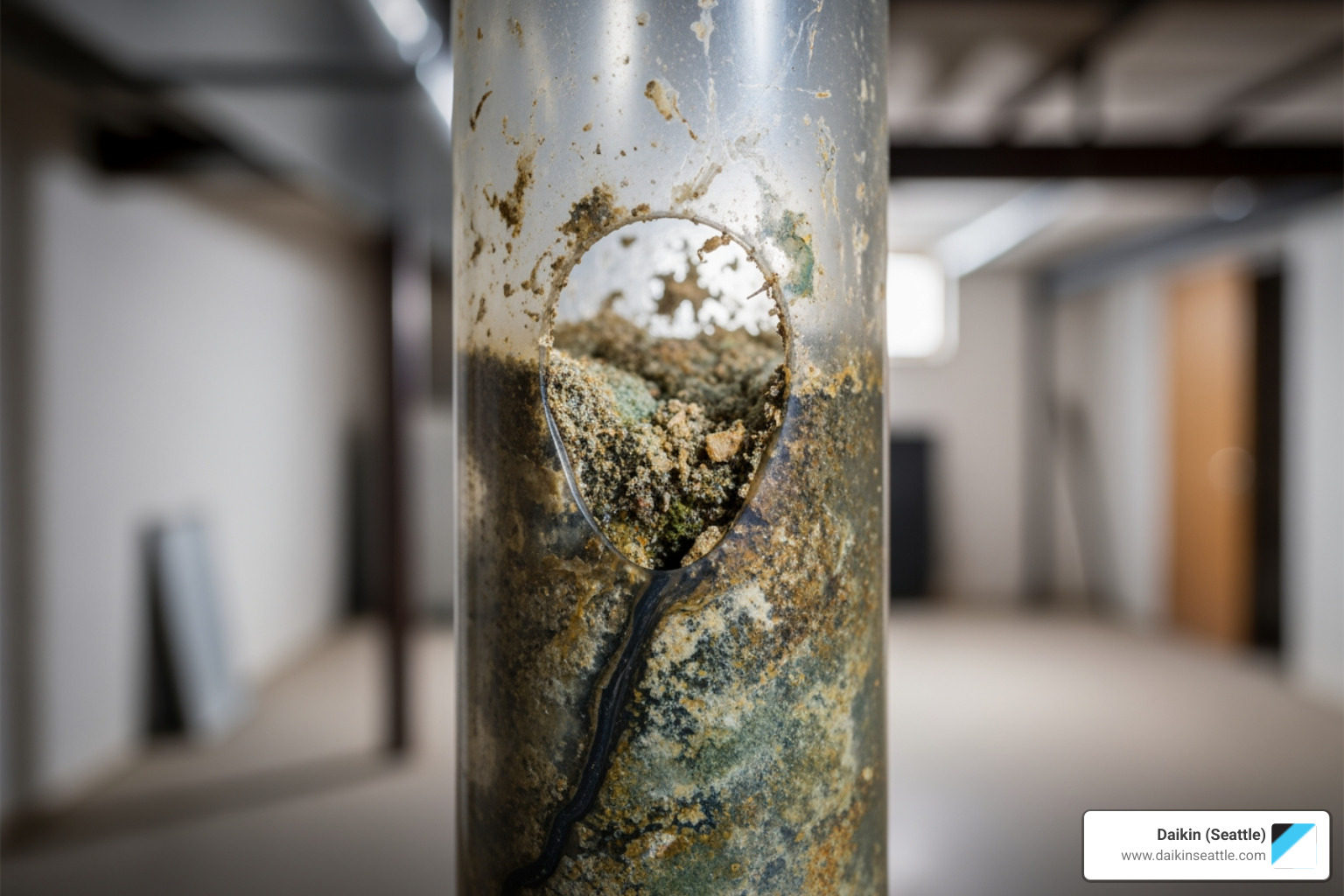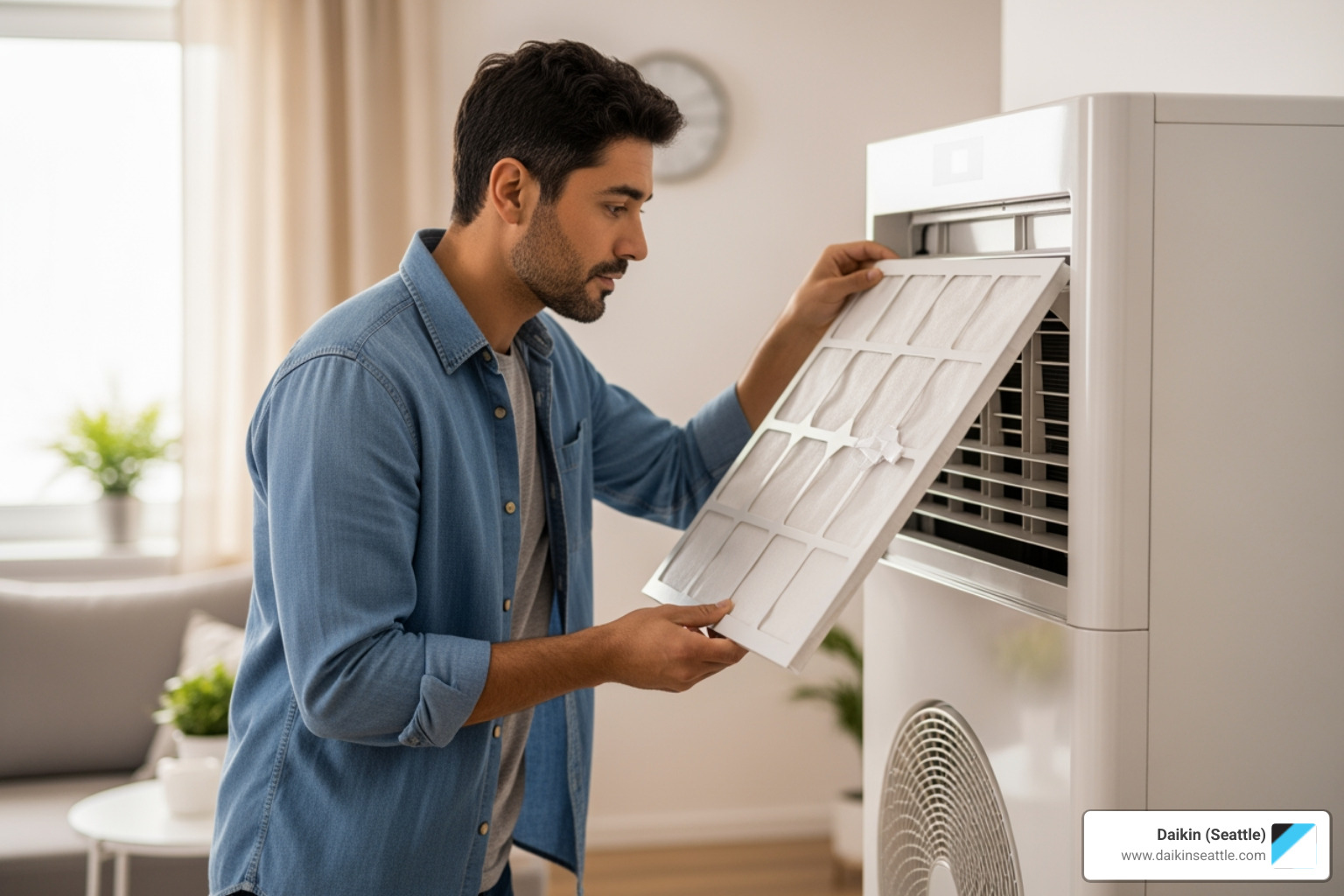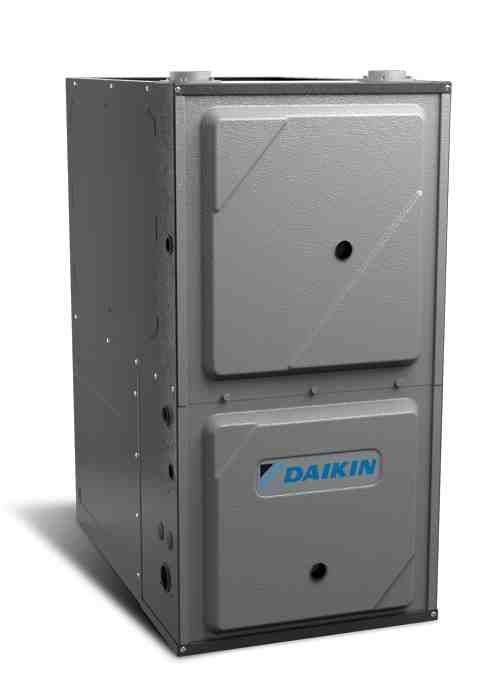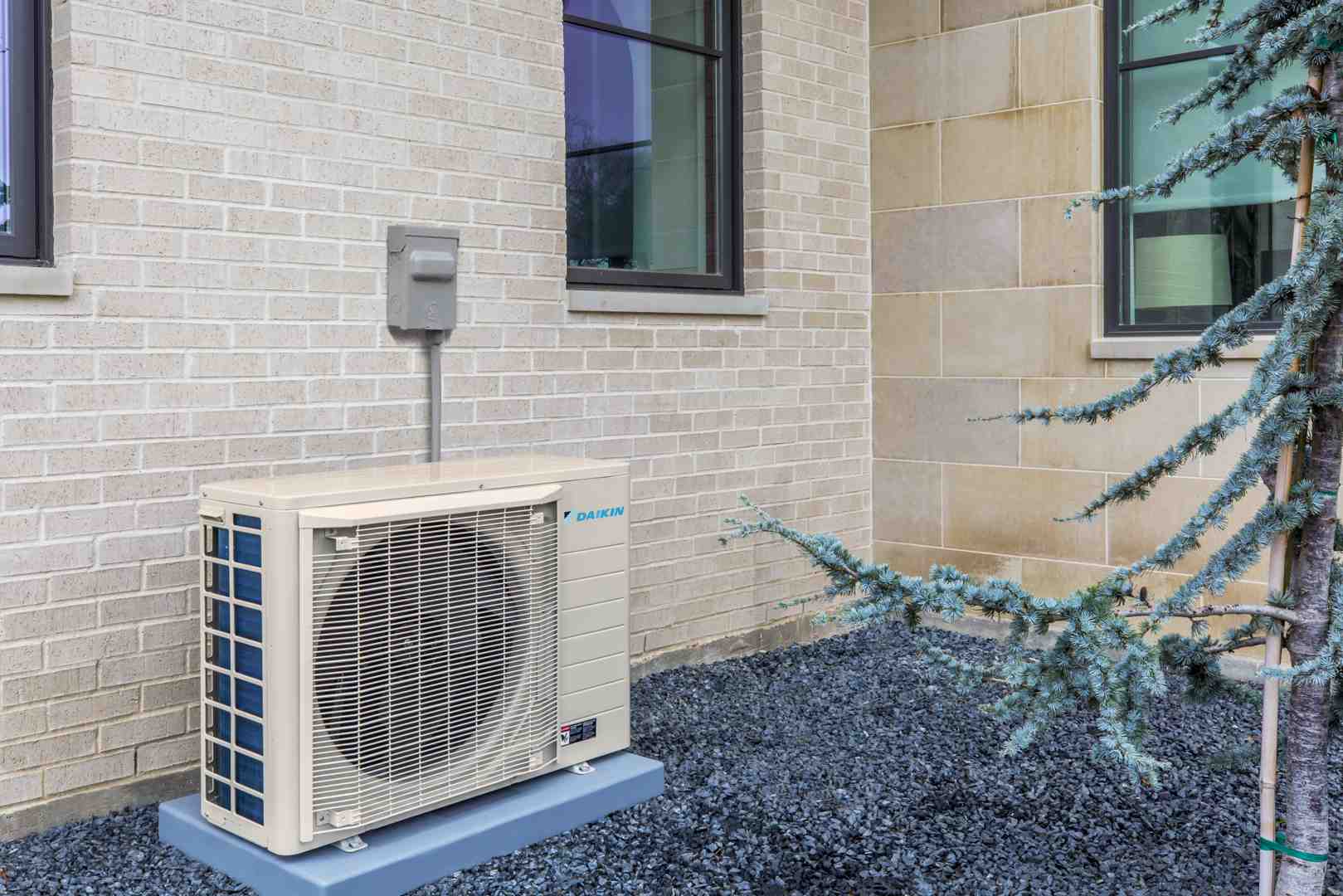Heat pumps leaking water in mill creek wa: Top 3 Fixes
Understanding Why Heat Pumps Leak Water in Mill Creek Homes
If you're dealing with heat pumps leaking water in mill creek wa, you're facing a common issue that demands quick attention to prevent serious home damage.
Quick Answer: Heat pumps leak water primarily due to:
- Clogged condensate drain lines blocked by algae, debris, or mold
- Frozen evaporator coils caused by dirty air filters or low refrigerant
- Cracked drain pans or failed condensate pumps from age or damage
- Improper installation leading to drainage issues
Heat pumps work by moving heat and removing moisture from your indoor air. That moisture normally drains away through a condensate system. But when something blocks or damages that system, water backs up and leaks into your home. In Mill Creek's humid Pacific Northwest climate, your heat pump generates significant condensation, making proper drainage absolutely critical.
Water pooling around your heat pump isn't just an inconvenience. Left unchecked, it damages flooring, promotes mold growth, and can even compromise your home's structure. Understanding what causes these leaks and knowing when to call for help protects both your comfort and your investment.
For expert guidance on maintaining your system year-round, visit our heat pump page, or if you need immediate assistance, contact our team for fast, reliable repair.
Common Causes of Heat Pumps Leaking Water in Mill Creek WA
Your heat pump works hard year-round to keep your Mill Creek home comfortable. During cooling season, the indoor evaporator coil pulls humidity from your air, creating condensation. In winter, your outdoor unit generates moisture too, especially when it runs through defrost cycles. All this water needs to go somewhere safe—and that's where your condensate system comes in.
Under normal circumstances, moisture collects in a drain pan and flows away through a condensate drain line. But when something goes wrong with this system, you'll find puddles where they definitely shouldn't be. Let's walk through the most common reasons heat pumps leak water in Mill Creek WA homes, so you know what to watch for.
Clogged Condensate Drain Line
Picture your kitchen sink drain after weeks of use—eventually, gunk builds up and slows things down. Your condensate drain line faces the same problem. Over time, dust, dirt, algae, and mold accumulate inside this narrow pipe, creating a stubborn blockage.
When the drain line gets clogged, condensation has nowhere to escape. Water backs up into the drain pan, and once that pan fills beyond capacity, it overflows right into your home. This is hands-down the most frequent cause of heat pumps leaking water in mill creek wa.
The good news? Regular maintenance prevents most drain line clogs before they become messy problems. Our HVAC Cleaning Service Seattle WA team can flush your drain line and keep water flowing where it belongs.

Frozen Evaporator Coil
When your evaporator coil freezes, it's trying to tell you something's wrong. This ice buildup happens when airflow gets restricted—think of it like trying to breathe through a completely stuffed nose. Your coil needs steady airflow to function properly, and when it doesn't get it, temperatures drop too low and ice forms.
What restricts that critical airflow? A dirty air filter tops the list. When your filter gets clogged with dust and debris, air can't pass through freely. Low refrigerant levels also cause freezing—the reduced pressure makes your coil get far colder than it should. Even blocked supply or return vents around your home can contribute to the problem.
Here's where the leak comes in: eventually, all that ice melts. When it does, you suddenly have far more water than your drain pan was designed to handle. The result? An overflow that spills into your living space. If you've noticed your system isn't cooling effectively alongside the leak, a frozen coil is likely the culprit. Check out our article on AC Not Cooling Seattle for more details about this issue.
Cracked Drain Pan or Pump Failure
Your drain pan sits beneath the evaporator coil, catching every drop of condensation. But after years of constant moisture exposure, even the sturdiest pan can develop problems. Age and corrosion take their toll, and physical damage from maintenance work or shifting equipment can create cracks. Even a hairline crack lets water seep through and drip where it shouldn't.
Many heat pumps rely on a condensate pump to move water to a suitable drain, especially when gravity drainage isn't an option. If this pump fails, water simply sits in the pan with nowhere to go. Most systems include a safety switch that shuts everything down when water levels get too high—but if that switch malfunctions too, your heat pump keeps running and the pan keeps overflowing.
These component failures become more common as your system ages, which is why regular inspections matter. Catching a corroded pan or struggling condensate pump early prevents the water damage that comes with a full-blown leak.
A Homeowner's Guide to Identifying and Addressing a Leak
Finding a puddle of water around your heat pump isn't exactly how anyone wants to start their day. But don't panic—knowing what to look for and how to respond quickly can save you from much bigger headaches down the road.
The signs aren't always obvious at first. You might notice water stains creeping across your ceiling or walls. Perhaps there's a persistent musty smell that won't go away, even after you've cleaned. Listen carefully—do you hear dripping sounds coming from inside your walls or near your indoor unit? And of course, the most obvious sign: puddles forming around your heat pump. These are all red flags that demand your attention.
First Steps to Take When You Spot a Leak
When you find water where it shouldn't be, your first priority is safety. Water and electricity are a dangerous combination, so turn off the power to your heat pump at the breaker before you do anything else. Yes, this means your home might get a bit uncomfortable temporarily, but it's far better than risking an electrical shock or fire.
Once the power is off, grab some towels, a mop, or a wet/dry vacuum and absorb any standing water. The faster you clean it up, the less chance it has to seep into your flooring, walls, or subflooring. If you have furniture, electronics, or anything else valuable near the leak, move them to a dry area right away.
These simple actions can prevent a minor leak from becoming a major disaster. For additional guidance on addressing heat pump issues, check out our Heat Pump Troubleshooting guide.

DIY Checks You Can Perform Safely
After you've handled the immediate situation, there are a few simple things you can check yourself—no special tools or technical expertise required.
Start with your air filter. This is hands-down the easiest fix and surprisingly often the culprit behind heat pumps leaking water in Mill Creek WA. Pop open your air handler's access panel and take a look. If the filter looks like it's been through a dust storm, replace it with a fresh one. A clogged filter restricts airflow, which can cause your evaporator coil to freeze and eventually overflow. Make it a habit to check your filter monthly and replace it every one to three months depending on use.
Next, take a look at the visible drain line opening where the condensate exits your system. Sometimes you'll spot an obvious blockage right at the opening—maybe some debris, a buildup of gunk, or even a curious insect that decided to make a home there. If you can see something blocking it and can safely remove it, go ahead.
Finally, step outside and inspect your outdoor unit. Clear away any leaves, grass clippings, branches, or other debris that might be blocking the coils or drain holes. Your outdoor unit needs breathing room to function properly, and keeping the area around it clear helps prevent drainage issues.
The U.S. Department of Energy emphasizes that proper use and regular maintenance are essential for keeping your heat pump running efficiently and preventing problems like leaks.
Potential Damage from Unchecked Leaks
Here's the thing about water leaks: they don't get better on their own. What starts as a small puddle can snowball into serious, expensive damage if you ignore it.
Structural wood rot is one of the biggest concerns. When water continuously soaks into wooden beams, subflooring, or joists, the wood begins to decay and lose its strength. This isn't just cosmetic—it's a threat to your home's structural integrity.
Your drywall won't fare much better. You'll see water stains spreading across walls and ceilings, paint bubbling and peeling, and eventually the drywall itself will start to crumble and fall apart.
Then there's the mold and mildew growth. Mold loves damp, dark spaces, and a leaking heat pump creates the perfect environment. Beyond the unpleasant musty odors, mold can trigger allergies, respiratory problems, and other health issues for you and your family.
Don't forget about electrical hazards. Water near your heat pump's electrical components can cause short circuits, damage sensitive parts, or in the worst cases, create fire risks.
And if all that wasn't enough, ignoring a leak can lead to complete system failure. What might have been a simple fix—like clearing a drain line—can cascade into damaged coils, a burned-out compressor, or other major component failures that cost thousands to repair or replace.
The bottom line? A little water might not seem like a big deal at first, but it deserves your immediate attention. When in doubt, it's always better to call in a professional than to wait and see if things get worse. Spoiler alert: they usually do.
When to Call a Professional for Heat Pump Repair in Mill Creek
While checking your air filter or clearing visible debris are simple tasks you can handle yourself, many causes of heat pumps leaking water in Mill Creek WA go beyond basic troubleshooting. Knowing when to call in an expert can mean the difference between a quick fix and extensive water damage to your home.
Signs You Need an Expert for heat pumps leaking water in mill creek wa
If you're seeing significant water pooling around your heat pump—not just a few drops, but continuous puddles that keep forming—you're dealing with more than a minor issue. This kind of leak won't resolve itself and needs professional attention.
Ice formation on your indoor or outdoor coils is another clear signal to call for help. When ice builds up where it shouldn't be, it points to problems with airflow, refrigerant levels, or the defrost system. These aren't issues you can safely diagnose or fix on your own.
Sometimes your heat pump makes the decision for you. If your system won't turn on at all, it may have triggered a safety switch because the drain pan is full. This built-in protection prevents flooding, but it also means your system needs professional service to get back up and running.
Pay attention to unusual sounds and smells too. A hissing noise often indicates a refrigerant leak, which requires immediate professional intervention. Any burning smells are an even more urgent red flag—turn off your system and call a technician right away.
Finally, if you've cleaned your filter and cleared visible blockages but the leak keeps coming back, there's an underlying problem that needs expert diagnosis. Recurring issues rarely fix themselves. Our guide on Common Heat Pump Error Codes can help you understand what your system might be trying to tell you.

Professional Diagnostic and Repair Services
When our certified technicians arrive at your Mill Creek home, we don't just mop up the water and hope for the best. We start with a comprehensive system inspection, examining both your indoor air handler and outdoor unit to identify exactly where the problem originates and what's causing it.
For clogged drain lines, we use professional drain line flushing techniques with specialized equipment and solutions that go far beyond what household tools can accomplish. We clear out stubborn algae colonies, accumulated debris, and biological growth that's been building up in places you can't see or reach.
If restricted airflow is the culprit, we provide thorough evaporator coil cleaning to restore proper air circulation. Clean coils mean your system can breathe properly again, preventing the freezing issues that lead to overflow leaks.
When we suspect refrigerant issues, we use advanced refrigerant leak detection tools to pinpoint even tiny leaks in your system. Once found, we repair the leak and recharge your system to the manufacturer's specifications—something that requires specialized certification and equipment.
Sometimes components simply reach the end of their service life. We handle component replacement for cracked drain pans, failed condensate pumps, and other damaged parts with quality replacements that restore your system to proper working order.
The best approach? Preventing these problems before they start. Our Professional HVAC Maintenance Services include regular inspections and cleaning that catch small issues before they become water-leaking emergencies.
The Difference Between Water and Refrigerant Leaks
Not all puddles around your heat pump are the same, and understanding the difference matters for your safety and your system's health.
Water leaks are exactly what they sound like—clear, odorless liquid (though it might feel slightly slimy if algae is present). These leaks tell you something's wrong with your condensation drainage system. They're inconvenient and can cause damage, but they're not immediately hazardous to handle.
Refrigerant leaks are a completely different story. Refrigerant is a chemical fluid, not water, and it requires professional handling. You might hear a distinct hissing sound coming from your unit—that's pressurized refrigerant escaping. You may notice an oily residue around the refrigerant lines. Your system's cooling or heating efficiency will drop noticeably, forcing the unit to work harder and driving up your energy bills.
Refrigerant leaks pose both health and environmental risks. The chemicals can be harmful if inhaled in concentration, and they contribute to environmental damage when released into the atmosphere. This is why refrigerant handling requires EPA certification—it's not something for DIY attempts.
If you suspect your heat pump is leaking refrigerant rather than water, contact us immediately. The U.S. Department of Energy provides helpful information about refrigerant leak concerns and why professional service is essential.
Frequently Asked Questions about Heat Pump Leaks
When you find water around your heat pump, it's natural to have questions. We've helped countless Mill Creek homeowners understand what's happening with their systems, and these are the questions we hear most often.
Is it normal for my heat pump to leak water outside?
Here's the short answer: yes, some water dripping from the outdoor unit is perfectly normal, especially during winter months. Your heat pump has a clever built-in defrost cycle that kicks in when temperatures drop below freezing. This cycle typically runs for about 5-10 minutes every 30-90 minutes, melting away ice that naturally forms on the outdoor coils.
When that ice melts, the water has to go somewhere—and that somewhere is usually onto the ground around your outdoor unit. You might even see a small puddle form, which is completely expected.
However—and this is important—excessive water or ice buildup that doesn't clear is a different story. If you notice continuous leaking outside of the normal defrost cycle, or if ice keeps building up without melting away, that could signal a problem with your defrost system or other components. In those cases, it's worth having a professional take a look.
How often should I change my heat pump's air filter to prevent leaks?
Think of your air filter as your heat pump's lungs. When those lungs get clogged, your system can't breathe properly, and that's when problems start.
We recommend checking your filter once a month and replacing it every 1-3 months. If you have furry friends at home or family members with allergies, you'll probably need to change it more frequently—sometimes even monthly.
Why does this matter for leaks? A clogged filter is one of the primary causes of restricted airflow, which leads to a frozen evaporator coil. When that frozen coil eventually melts (and it will), you get a flood of water that overwhelms your drain pan and creates those unwelcome puddles in your home.
The good news? Changing your filter is one of the simplest, most effective ways to prevent heat pumps leaking water in Mill Creek WA. It takes just a few minutes and can save you from much bigger headaches down the road.
Can a dirty heat pump cause a water leak?
Absolutely, yes. Dirt and grime are among the most common culprits behind indoor water leaks.
When your evaporator coil gets dirty, it can't properly manage the condensation it creates. Instead of water draining neatly into the pan where it belongs, it runs off in unpredictable ways, potentially missing the pan entirely.
Even more common is a clogged condensate drain line. Over time, this line becomes a breeding ground for dust, dirt, algae, and mold. These unwanted guests create blockages that prevent water from draining away. With nowhere else to go, that water backs up and overflows into your home.
Regular cleaning and maintenance are essential for keeping your drainage system functioning properly and your home dry. Think of it as preventative care—much easier and less expensive than dealing with water damage and emergency repairs. For comprehensive system care, our Professional HVAC Maintenance Services can help keep everything running smoothly year-round.
Your Local Solution for a Dry and Comfortable Home
Finding heat pumps leaking water in Mill Creek WA is never fun, but here's the good news: with prompt action and the right help, you can prevent a small puddle from becoming a costly disaster. Throughout this guide, we've walked through the most common causes—from clogged drain lines to frozen coils—and shown you how to spot the warning signs early.
Taking care of your heat pump isn't just about fixing problems when they arise. It's about protecting your home from water damage, maintaining your system's longevity, and ensuring your family stays comfortable year-round in our Pacific Northwest climate. A little attention now saves you from major headaches (and expenses) down the road.
At Daikin, we're committed to providing advanced HVAC solutions that deliver exceptional indoor comfort, impressive energy efficiency, and real sustainability for homes throughout Mill Creek and beyond. Our team understands the unique challenges that our humid climate presents, and we're here to keep your home dry, comfortable, and your heat pump running smoothly season after season.
Whether you're dealing with a minor drip or a more serious leak, we're ready to help. For comprehensive support and to ensure your system runs efficiently all year long, explore our expert heat pump services. If you're currently experiencing a leak or have any concerns about your heat pump's performance, don't wait for the problem to get worse—contact our team today. We're here to help you maintain a comfortable, worry-free home you can count on.

Schedule a Visit

your individual indoor comfort needs

products firsthand

with an authorized Daikin Dealer
.webp)

.webp)

.svg)
